Beekeeping a Beacon of Hope and Strength for the Community
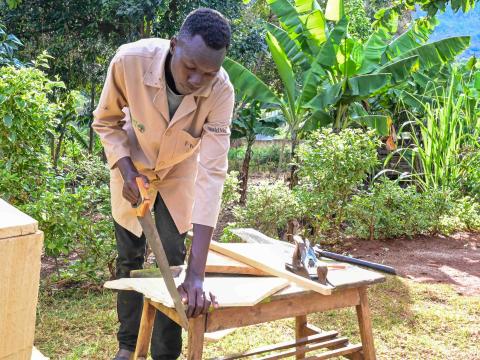
In Kapterit village, Elgeyo Marakwet County, Kenya, we witness the inspiring journey of Nathan Kipyego, a father and former casual laborer, whose transformation began not with wealth or privilege, but with a seed of opportunity and the determination to thrive. Today, he is a changemaker, rewriting his story and uplifting his community along the way.
“For years, I survived on casual jobs,” Nathan recalls. “No steady income, no clear direction. Every day was a struggle.” Nathan knew what it meant to work hard, but without access to sustainable opportunities, hard work rarely translated into meaningful progress.
In May 2023, Nathan, was selected to attend a beekeeping artisanal training at Baraka College through support from World Vision’s Central Rift Farmer Managed Natural Regeneration Scale-Up Project (CRIFSUP), funded by the Australian NGO Cooperation Program (ANCP). What seemed like a simple skills training opened up a whole new world for him.
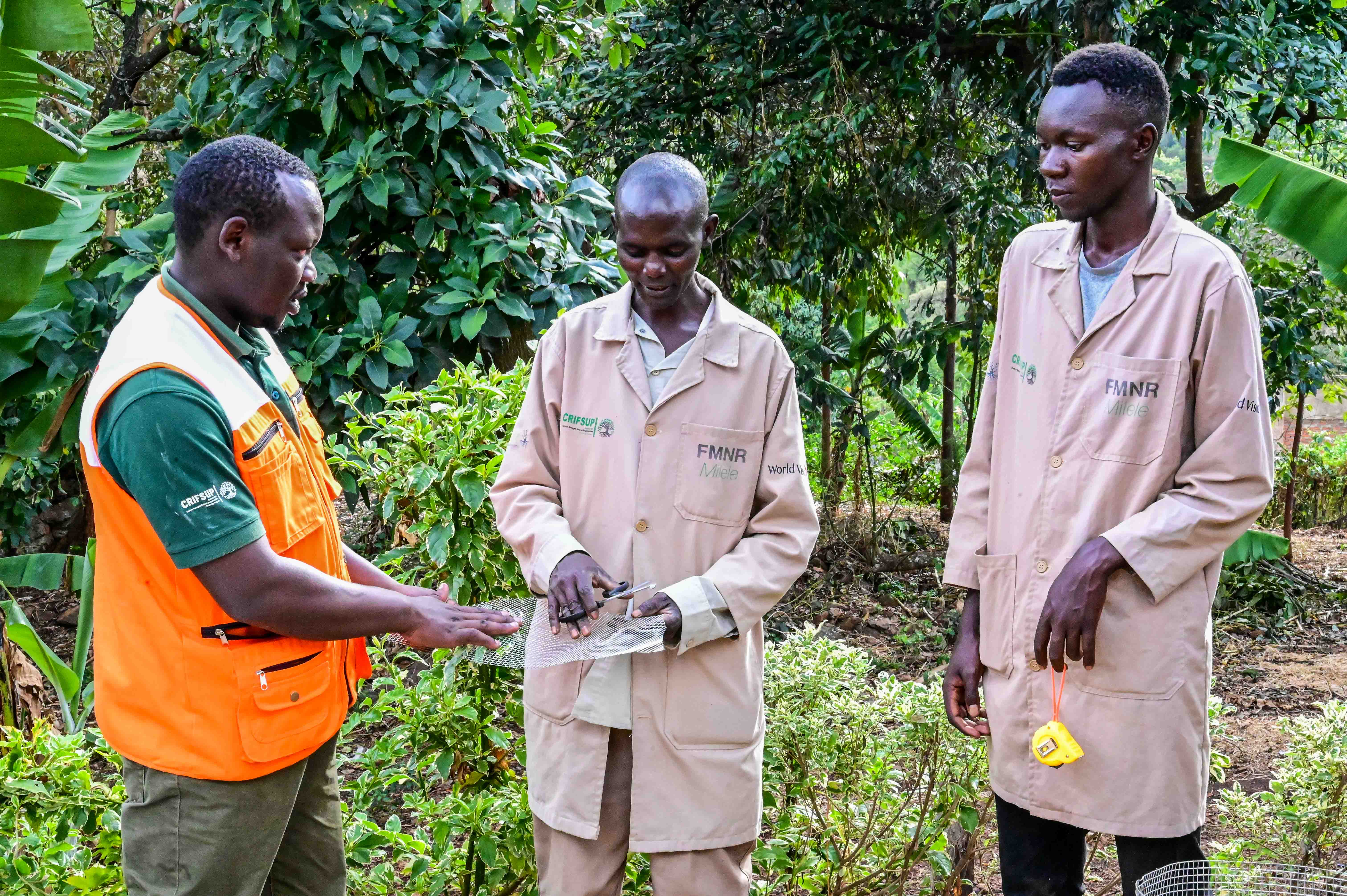
“I learned how to make Kenya Top Bar Hives (KTBH) and Langstroth hives, how to manage an apiary, harvest honey and even time management, something I hadn’t given much thought before,” Nathan says. “That training planted a seed in me. ”
Though he didn’t jump into action right away, Nathan spent the following months reflecting, planning, and preparing for his next steps. By December 2023, he was ready. Together with a few others, Nathan formed a small group focused on beehive production and apiary services. They didn’t just construct beehives, they became beekeepers themselves. Today, Nathan owns 17 hives and has helped establish a flexible, community-focused business model.
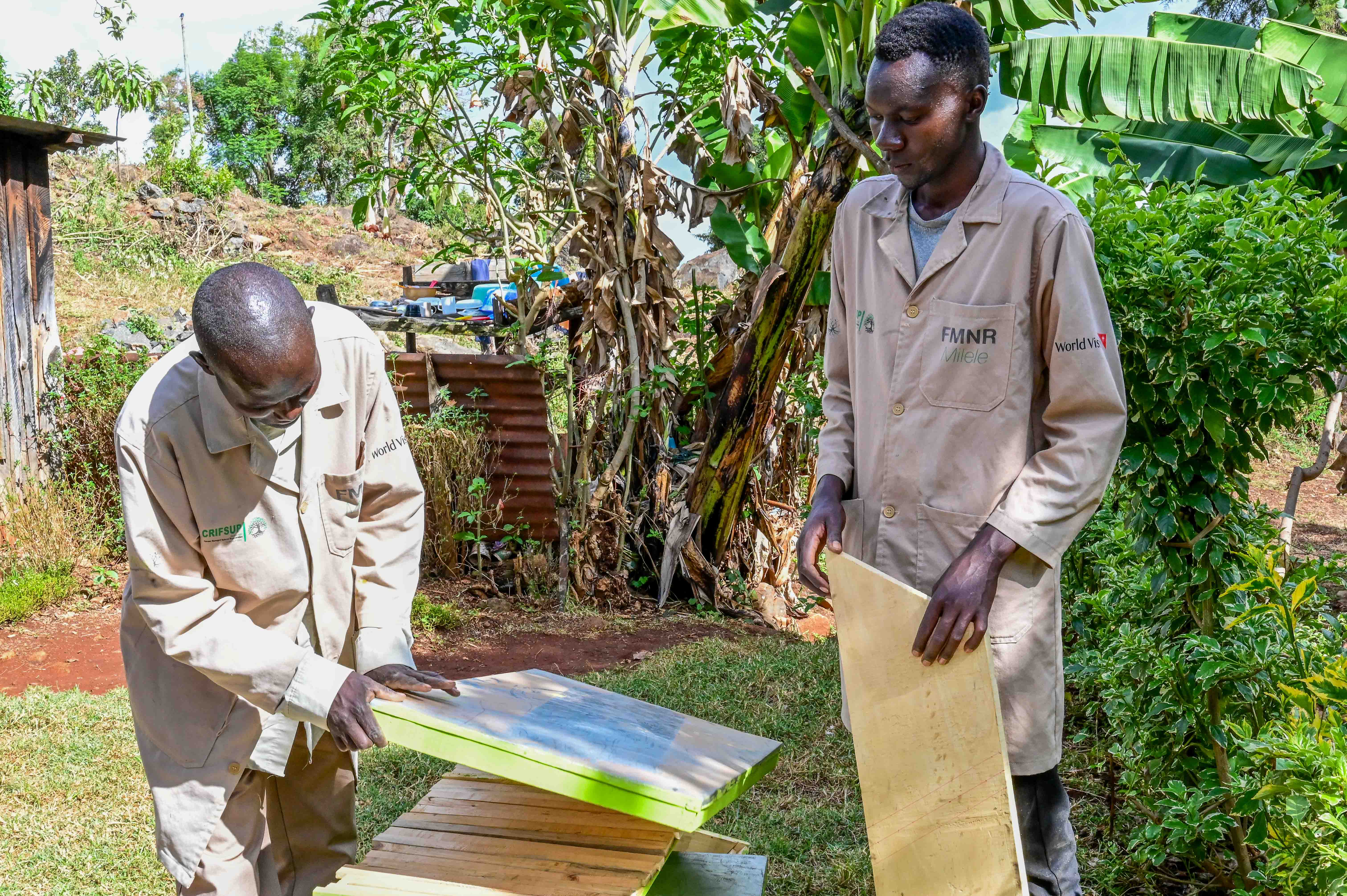
“Clients can bring their materials and pay a modest fee of 1,000 KES [7.74 USD] per hive for labor, or we can provide a full-service package at 5,000 KES [38.7 USD]. For lead farmers like myself, we offer a subsidized rate of 4,000 KES [30.96 USD],” Nathan explains.
“Beekeeping work has transformed my life in ways I never imagined,” Nathan proudly shares,“I no longer depend on casual jobs. I can feed my family, pay my son’s school fees and save for the future.”
Nathan’s vision stretches beyond his own home. His group now offers training and support to other beekeepers, especially local youth looking for direction and income.
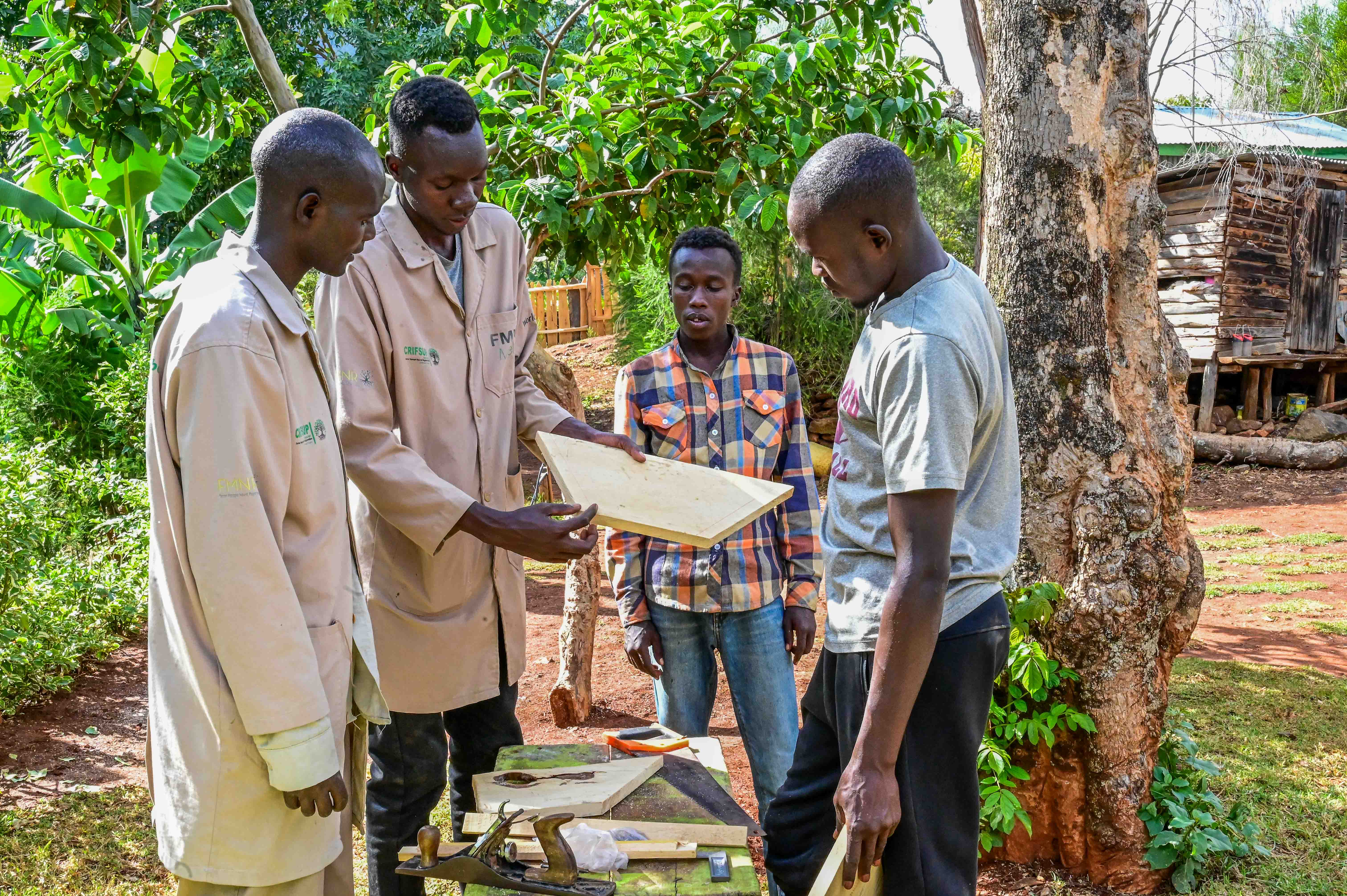
“We want to grow. We dream of setting up a workshop and investing in a woodwork machine,” he explains. “Right now, we spend too much on timber preparation and transport. With our own machine, we’ll save time, money, produce more and expand the business faster.”
That dream is already taking root. Nathan has engaged the County Government and secured land for the future workshop. What started as a personal transformation is becoming a community movement.
Beekeeping has deepened Nathan’s connection to the land. As a youth lead farmer practicing the Farmer Managed Natural Regeneration (FMNR), he is committed to conserving trees and protecting bees. The trees provide a conducive cool climate favorable for apiculture while the bees play a key role, helping pollinate crops and guarding regenerating trees. It’s a win-win: income for families and restoration for nature.
“Thanks to World Vision’s training, I even shifted from conventional long-term crops to short-term, high-yield options,” he says, “Despite the harsh dry season, I still harvested three sacks of beans — something I never thought possible.”
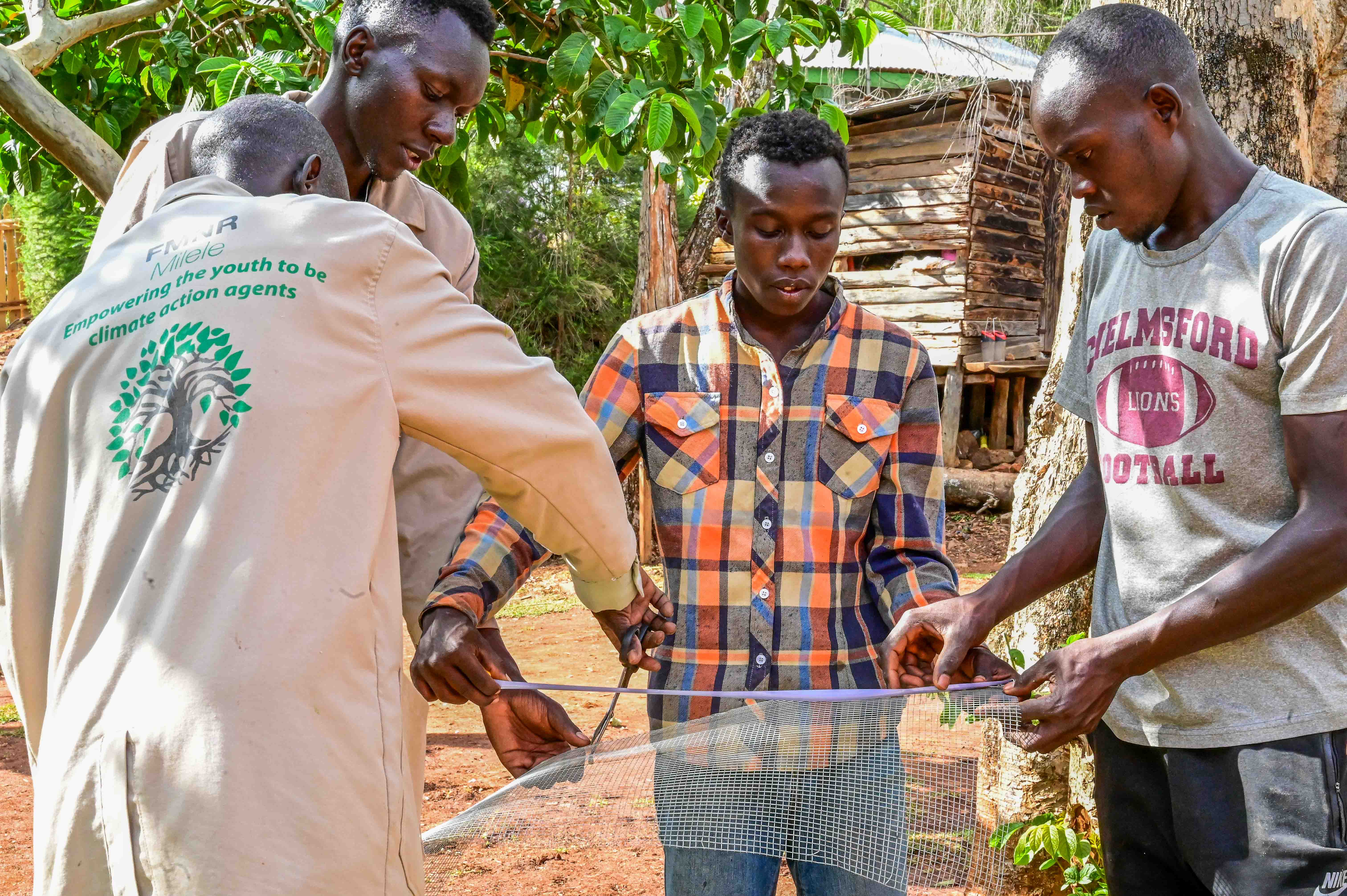
In just one year, Nathan went from job uncertainty to entrepreneurship. His days are filled with purpose and vision, now managing his time wisely.
“In three years, I see myself running a fully equipped workshop, training youth, and timber supply business,” he says,“We’ll create jobs, supply hives, and protect our environment.”
“World Vision gave me knowledge and knowledge gave me freedom. If we keep sharing this knowledge, I believe Kapterit and many other communities like ours, will never be the same again,” Nathan states.
By Hellen Owuor, Communications Specialist (CRIFSUP), World Vision Kenya